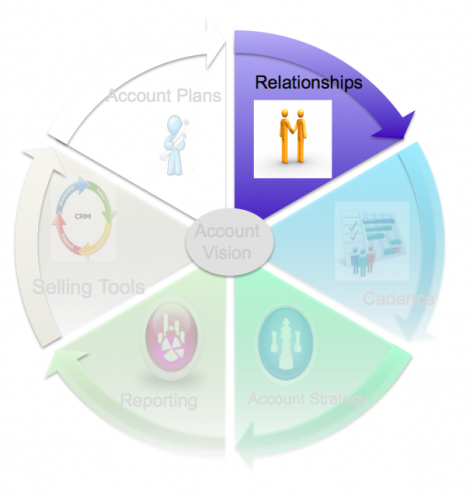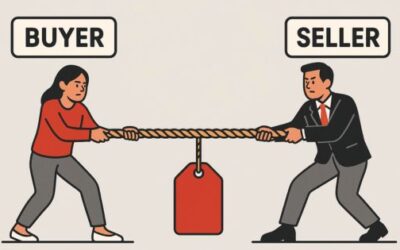The value of trust in sales processes cannot be underestimated. Relationships are a key factor in the business world. The sales world has been captivated by the notion of how relationships affect sales success for years. You’ve also probably heard me say that relationships don’t matter, because many of the relationships we’re developing don’t.
Many believe that entertaining clients with golf outings and fancy dinners is the way to win business, BUT the truth is being a trusted advisor is far more valuable. Trust and credibility are the foundations of successful sales relationships and without them sales processes will fall flat. Let’s explore the value of trust in sales and why you should stop worrying about impressing clients with your short game and focus on your business expertise instead.
Relationships are the hardest element of account governance to write about. It’s hard because it’s difficult to measure. It’s not objective. There isn’t a paint by numbers process to create relationships, to know if you have the appropriate ones etc. Relationships are critical to good account governance, but it’s hard to put them in a box. Later in the series I will talk about account cadence. A good cadence can help you manage the relationships, but it can’t build them.

This being said, understanding the critical nature of the relationship to an overall account governance is critical.
I remember early in my career a peer gave a presentation about two types of relationships. He talked about the person at your customer’s business that would always answer your calls, who would accept your invitations to lunch and could always be counted on for a good game of golf. This relationship would always invite you into deals and could be counted on for support, BUT when it came to the really big deals or the core business affecting opportunities they would be conspicuously quiet.
This peer of mine then went on to talk about another type of relationship. He talked about the customer who called you and asked for advice. This relationship wasn’t always available for lunch or golf, but always invited you to the strategic business discussions. This relationship made few decisions without getting your insight. This relationship always made sure you were not only part of the big deals, but asked for your help in crafting the RFP and setting the strategic direction.
It was during this presentation, I first heard the term: Trusted Advisor.
Building Trust in Sales
There are clearly different relationships when it comes to managing accounts. It’s not good enough just to have a “relationship”. You have to have the right relationship, with the right people across many aspects of the organization.
The “relationship” I’m referencing in this pie chart is the second one. In an account management environment it is critical to develop a trusted advisor relationship or partnership where you’re seen as an information source, as an influencer.
Getting to this point requires a perspective AND an approach that is not product-centric. I’ll say that again. It’s not product-centric. If the conversations tend towards product you are not headed towards the influencer position.
Establish your Credibility
To become an influencer requires a different perspective. It takes gambits, not transactions. It starts with your customers perspective and works out from there. It takes a tremendous amount of information about your account, the things your products and services enable and more. It’s more conversations than presentations. Most importantly, its having information your customer doesn’t have. It’s being smarter than your customer.
Being smarter than your customer is no small order. I rarely see people with this skill. Its magic when it happens.
The right relationships, with the right people, on the right level are a critical part of account governance. Build them on value. Build them on substance. Become an influencer. There will be plenty of time for golf, after they’ve called you to ask how to . . . ?
Need more resources for building a bullet proof sales team? Check out our resources library here.



What’s your opinion on the social media influencers who collaborate with the sellers? How trust play a role there?